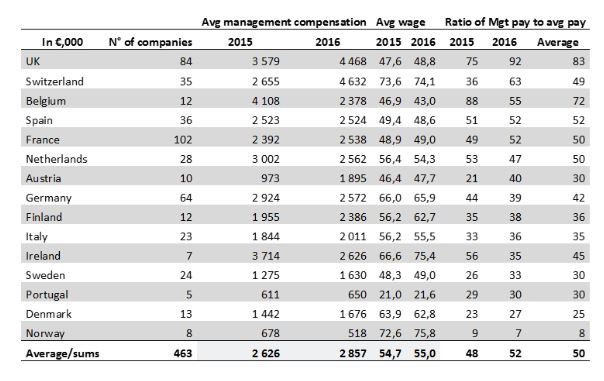Since she took office in July 2016, UK Prime Minister Theresa May has shown she wants to get tough with the country’s big businesses.
One area which she is focusing on is corporate pay transparency, an issue included in the Conservative Party’s manifesto for the June 2017 election. May believes there is an increasing gap between what large companies pay their workforce and what they pay their bosses.
According to Carax Alphavalue, May might be right in thinking that UK corporates “are stretching the envelope on that count.”
The table above shows the UK leads with an 83x pay gap vs 50x on average. Carax Alphavalue flags that the table is derived from Alpha Value’s European coverage (463 issuers with usable data), so the “real” country figures including non-listed corporates “are likely to be somewhat different.” As they explain:
The hierarchy between countries may not change much though. Unsurprisingly, Nordic countries pay their elites relatively less with more “democratic” ratios as a result.AlphaValue data is all inclusive as much as the data is available. As a rule, when there are only a few companies covered such as in Portugal, averages are essentially meaningless.
But the figures in the table are “skewed” by sector gaps, the experts note. The pay gap is highest in sectors which rely on employees who have “limited technical skills,” they say. And these sectors also offer part-time work more often, which skews the figures even more. Food and tourism-related businesses fall into this group, Carax Alphavalue says, adding there are less wage gaps between wealthier industries like oils and banks. They conclude:
It is, however, interesting to see that the gaps between sectors ex those hiring mostly low-skilled people are actually less than between countries, suggesting that indeed there may be some sort of a UK singularity on the issue.






